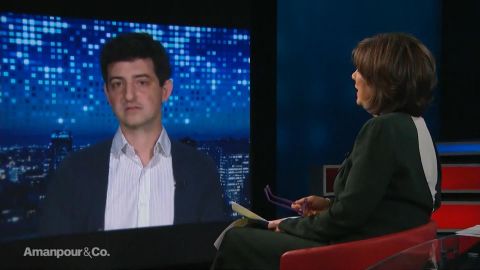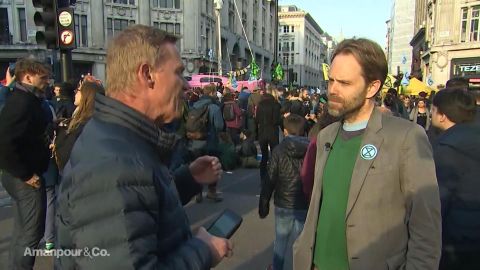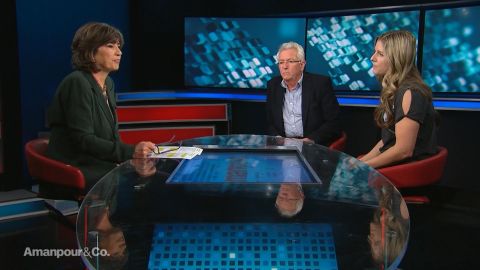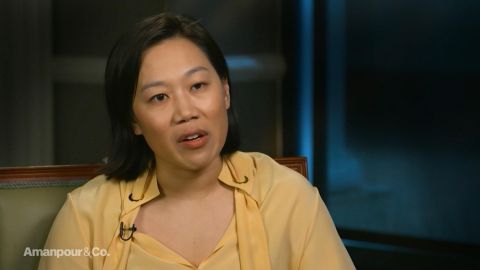Read Transcript EXPAND
KEITH SCHOLEY, SERIES PRODUCER, “OUR PLANET”: Yes, definitely I think we’ve all been in the wild life filmmaking business for a long time, and we’ve seen that things are increasingly becoming more urgent to do something about it. So this series we definitely wanted to show people the wonders of our world, because we’ve still got them, but they are going very, very fast and it’s — yes, it’s a wake up call. We have to do something now if we’re going to keep it, and if we’re going to keep the whole biosphere functioning as we’ve had for four millennia.
CHRISTIANE AMANPOUR: And you’ve been doing this in various different platforms and ways for many years, and worked with David Attenborough. I mean, just before I go to one of the clips, what is it Sophie, for you that’s so important about his voice and him putting all his experience behind this?
SOPHIE LANFEAR, DIRECTOR, “OUR PLANET”: I think David, I mean like no one else in the industry he’s a trusted voice with no agenda actually, and I think that’s what makes him more powerful — and his genuine passion. You know, David is the most passionate person on the planet when it comes to natural world. And he inspired all of us, he inspired me to get in to natural history filmmaking. So, having him kind of voice the series is a stamp of authority on it, it’s great.
AMANPOUR: So I’m going to play a clip, and we don’t often give viewers warnings about clips on the natural world, but we do have to in this case, because it is a really tragic demonstration on what the current environment is doing to walruses. I’m going to play it, I think it takes place on the Arctic Circle around Russia, is that right?
LANFEAR: Russia, that’s right.
AMANPOUR: So we’ll play it, and then we’ll talk to you. And you’ve — you are also visible in this behind the scenes — look, we’ll show you.
(BEGIN VIDEO CLIP)
CAMERAMAN: One’s going to go — there’s one right on the edge. There’s probably 200 or 300 dead walrus on like a half mile stretch of beach here, they’re exhausted because they’re having to swim 100 miles now to get to food, and then coming back here because it’s the only place to sleep. They used to sleep on the ice, dive down, eat the food, sleep on the ice — easy.
(END VIDEO CLIP)
AMANPOUR: So you’re the director, you were talking there with the cameraman — I guess how was it to see that — had you ever seen that kind of situation before?
LANFEAR: No, I mean even now watching it — every time it gets me. We went to that location expecting to maybe film a bit of tumbling down some shallow verges and maybe some polar bears interacting. I never — I mean, I was totally shocked. I didn’t realize they could climb 80 meter cliffs, and then we watched them many hours on the top and we’re just pretty shell-shocked when we saw the first ones deciding to back to the sea and walking off.
About This Episode EXPAND
Christiane Amanpour speaks with Keith Scholey and Sophie Lanfear about the new show “Our Planet;” Michael Holmes and Rupert Read about protests in London; and Nathaniel Rich about the Republican Party’s climate denialism. Hari Sreenivasan speaks with Priscilla Chan about her latest projects, education reform, and paying more tax.
LEARN MORE



